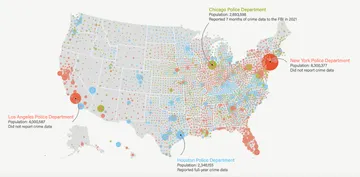This explainer is also available for download as a PDF.

Anthony Kent spent nearly five years in jail and prison in the state. He knew he wanted to vote after he got out, but he didn't know he could or how to do it.
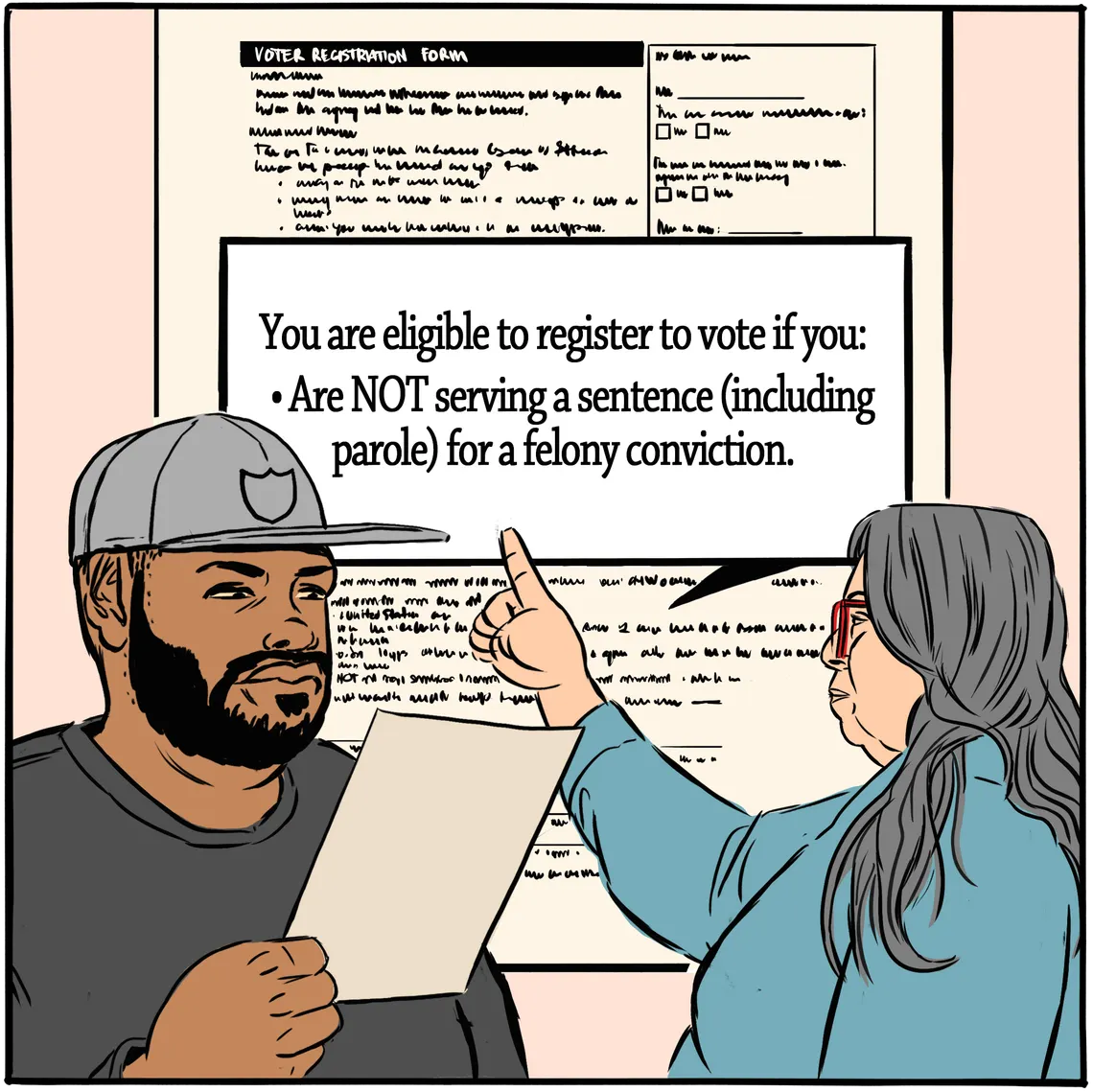
Anthony’s mom, Teri Quintana, picked up a packet with basic information he would need for life after prison. After digging around, Teri realized the packet's two voter forms wrongly said people on parole in Colorado were not allowed to vote.
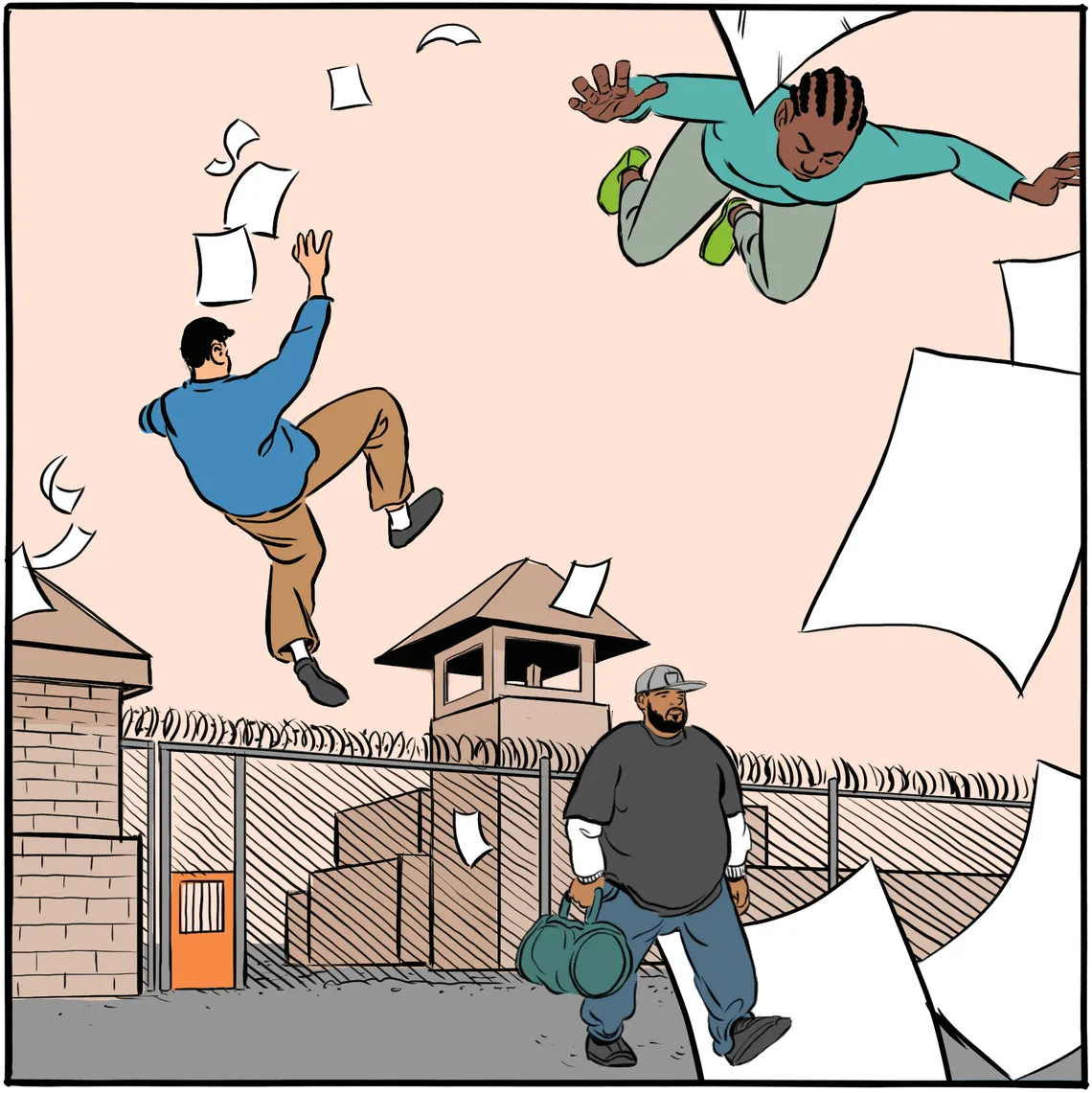
After seeing the forms, Anthony mistakenly believed that he was not allowed to vote. The series of outdated and incorrect forms almost kept him, and likely others, from voting.
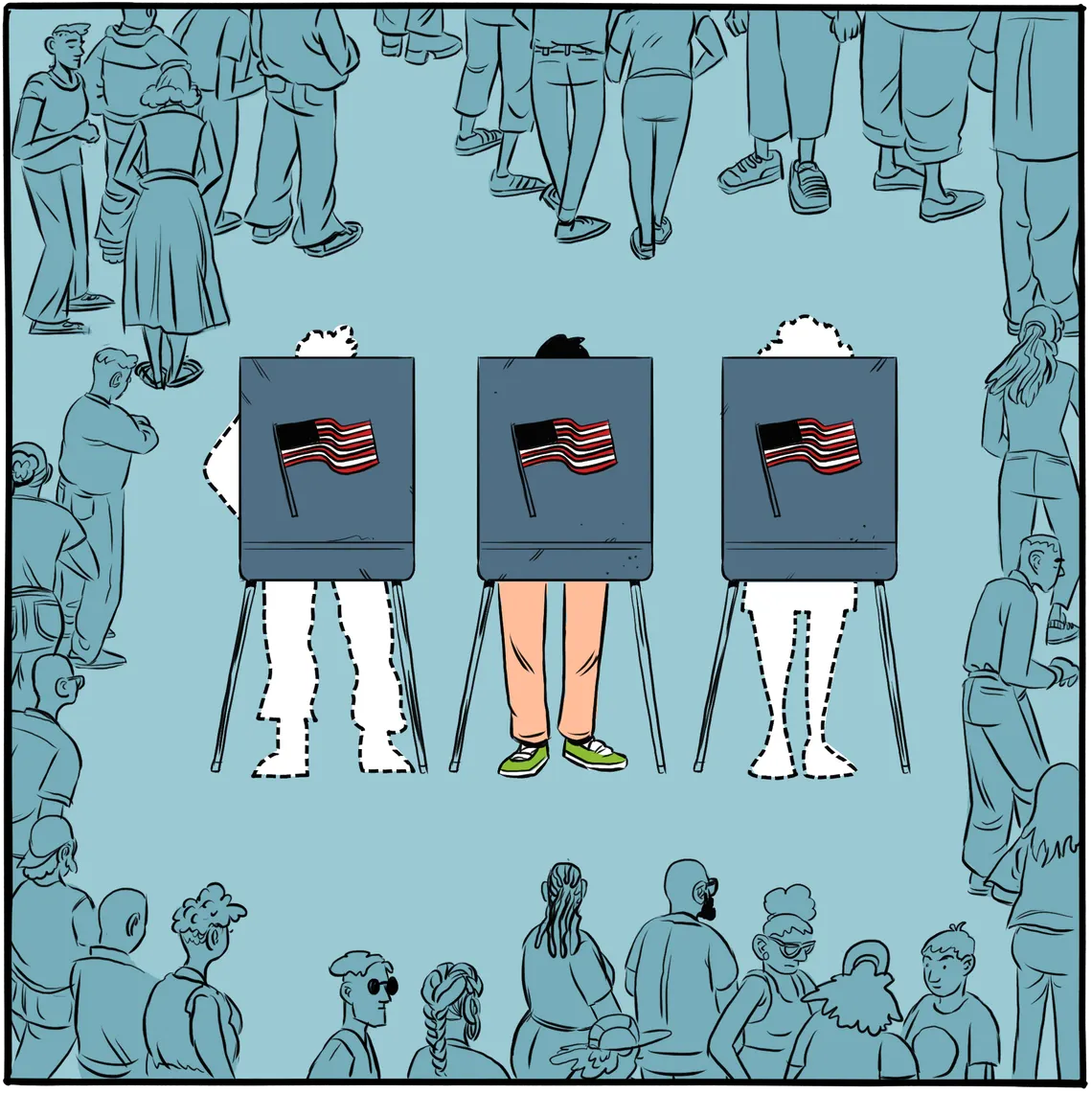
The number of formerly incarcerated people in Colorado has grown to nearly 30,000 since 2019. While 4 in 5 eligible voters are registered statewide, only 1 in 3 eligible formerly incarcerated people are registered.
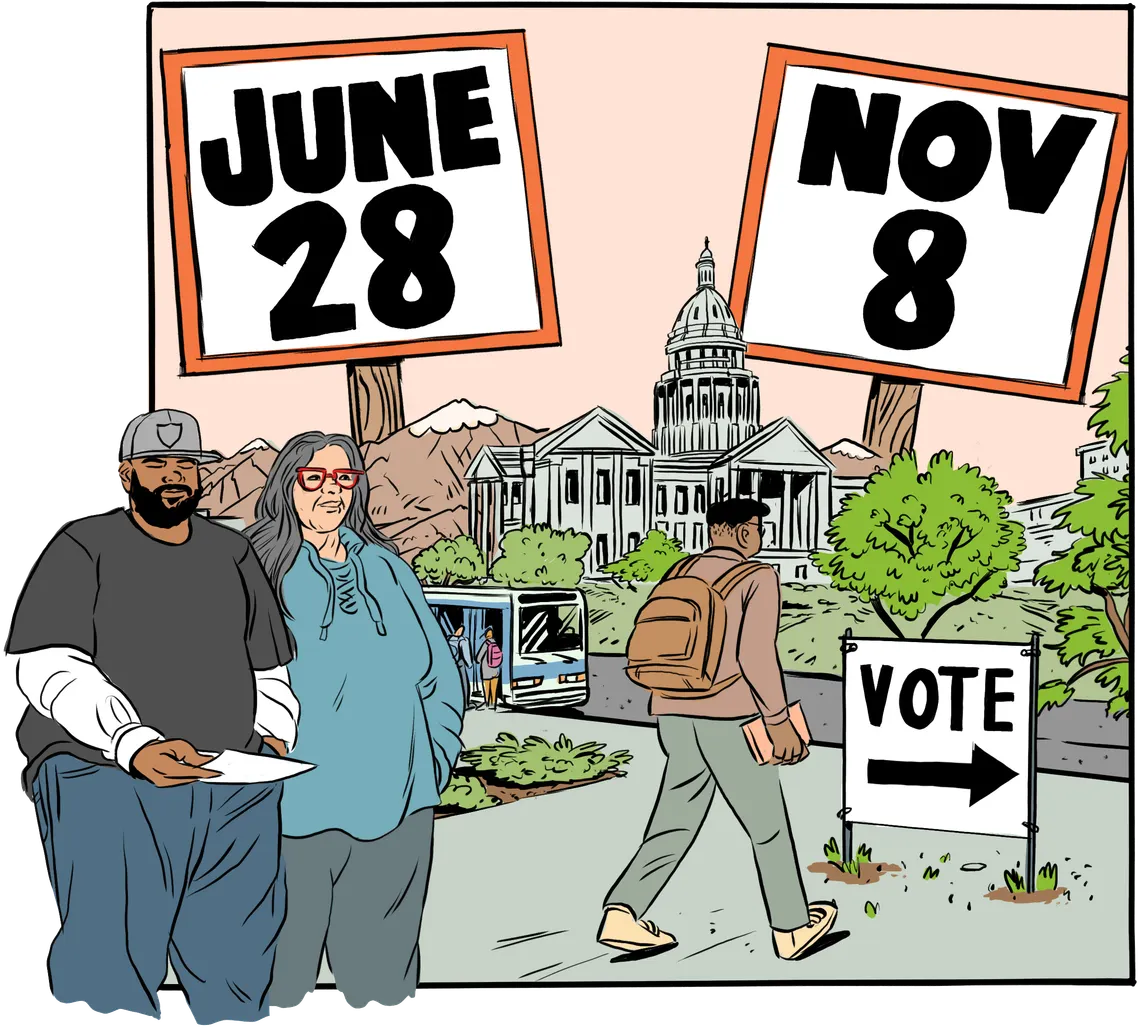
People on parole CAN register to vote. They should receive the correct forms from a parole officer. They can register to vote up until the day of an election — June 28 for the midterm primary elections this year — with U.S. Senate, U.S. House of Representatives, governor and other state and county races on the ballot — or Nov. 8 for the midterm general elections. Next year, Denver will have city elections for mayor and city council.
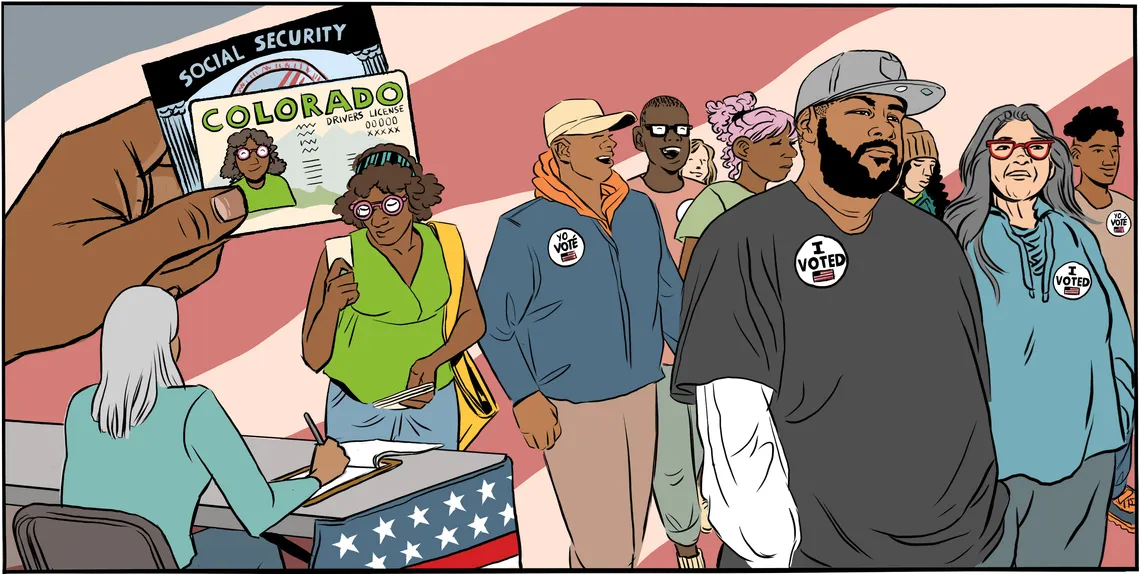
HERE’S HOW TO SIGN UP TO VOTE IF YOU ARE ON PAROLE
-
Have a valid driver’s license OR Colorado state ID and Social Security card ready.
-
Register online at govotecolorado.gov OR register in-person at one of the 300 voter registration agencies in the state, including the Department of Motor Vehicles, Health and Human Services or County Clerks’ offices.
